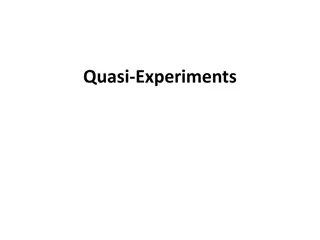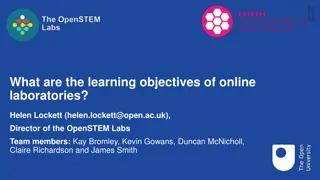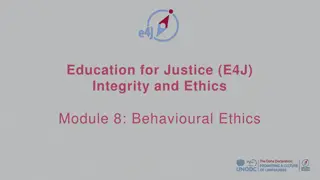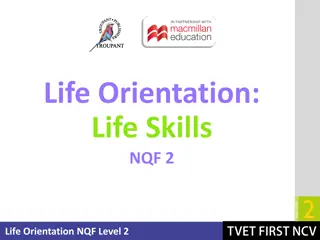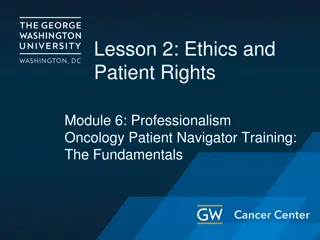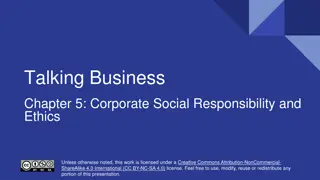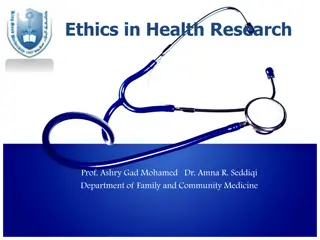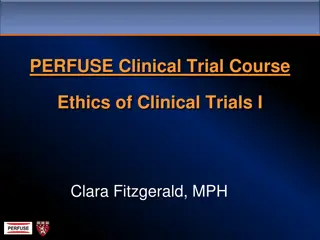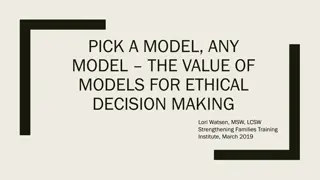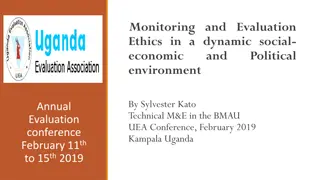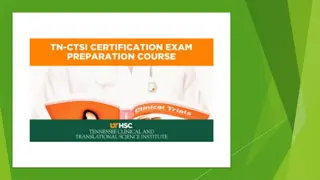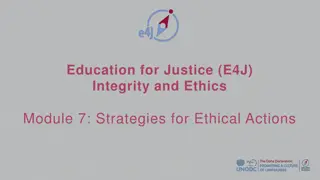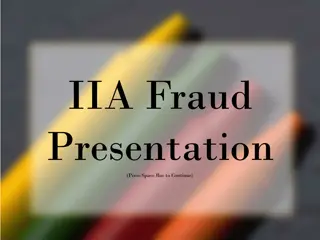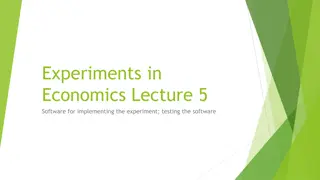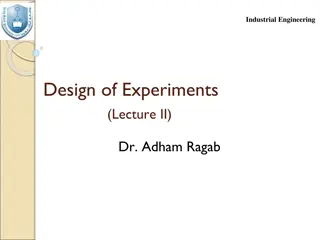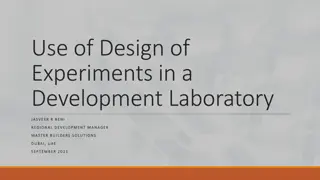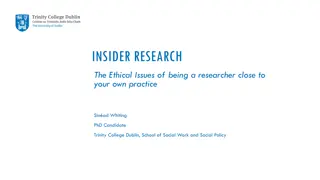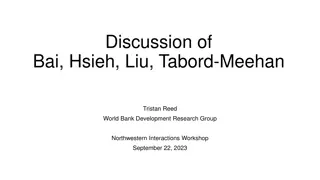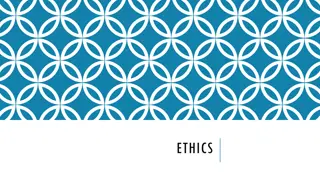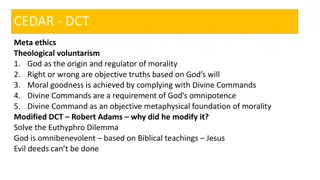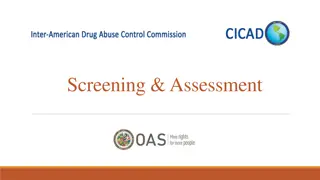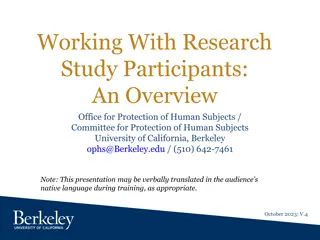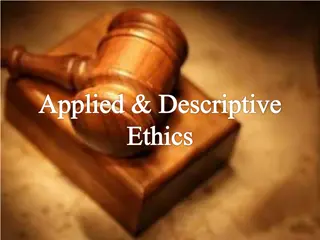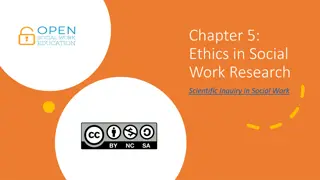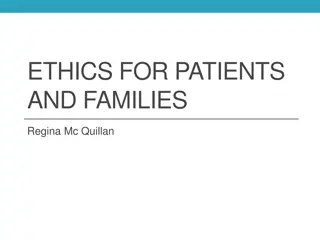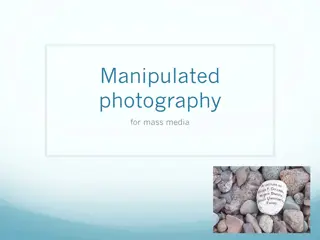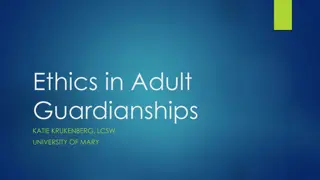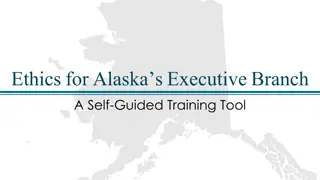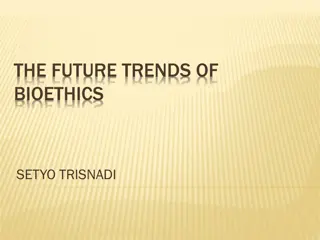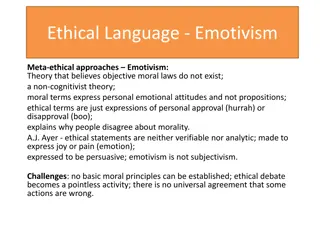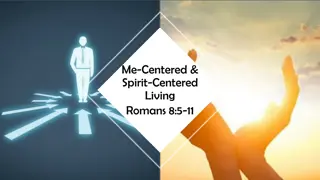Understanding Ethical Living: Challenges and Experiments
Explore the complexities of ethical living through various exercises and discussions. Dive into mechanisms that influence our ethical decisions, addressing issues like conformity, honesty, and responsibility. Gain insights to enhance ethical behavior in daily life.
Download Presentation

Please find below an Image/Link to download the presentation.
The content on the website is provided AS IS for your information and personal use only. It may not be sold, licensed, or shared on other websites without obtaining consent from the author. Download presentation by click this link. If you encounter any issues during the download, it is possible that the publisher has removed the file from their server.
E N D
Presentation Transcript
Education for Justice (E4J) Integrity and Ethics Module 6: Challenges to Ethical Living
Agenda Class overview (10 minutes) Exercise 1: Failing to see what is right in front of you (20 min) Exercise 2: Good Samaritan Experiment (30 min) Exercise 3: Asch s Conformity Experiment (45 min) Exercise 4: Milgram Obedience Experiment (60 min) Conclusion (15 minutes)
Learning Outcomes Upon completion of this module students should be able to: Understand mechanisms that lead us to act unethically and identify their impact on one s own life Explain and demonstrate how these mechanisms can play both positive and negative roles in our lives Understand the relationship between taking responsibility and being ethical, and how this applies to one s own life Gain insights that could facilitate working towards ethical improvement
Key issues The challenge of living ethically Selective attention and psychological distance Conformity, obedience, and the bystander effect Situationism Dishonesty
Class exercises E1: Failing to see what is right in front of you
Class exercises E2: The Good Samaritan Experiment
Class exercises E3: Asch s Conformity Experiment
Class exercises E4: The Milgram Obedience Experiment
Core reading Tavris, Caroll and Elliot Aronson (2015). Mistakes Were Made (But Not by Me): Why We Justify Foolish Beliefs, Bad Decisions, and Hurtful Acts. New York: Houghton Mifflin Harcourt Epley, Nicholas and Thomas Gilovich (2016). The Mechanics of Motivated Reasoning. Journal of Economic Perspectives, vol. 30, no 3, pp. 133 140 Ariely, Dan (2012). The (Honest) Truth About Dishonesty: How We Lie to Everyone Especially Ourselves. London: HarperCollins Publishers Rorty, Am lie Oksenberg (2001). How to harden your heart: six easy ways to become corrupt. The Many Faces of Evil: Historical Perspectives. Am lie Oksenberg Rorty, ed. London: Routledge


